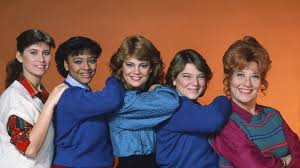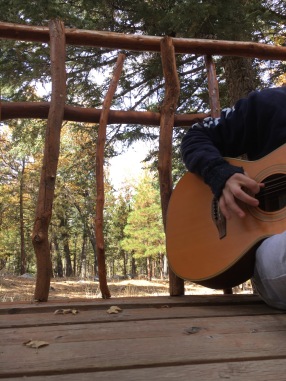Mama is down at Kirsten’s house having whiskey and Cokes with Kirsten’s daddy. While she is gone, this is my plan:
- I will sneak into the bathroom in the dark.
- I will take mama’s yellow toothbrush out of the cup by the sink.
- I will take the bottle of Windex, which is poison, and I will dip her toothbrush all the way down into the bottle.
- I will put the now poisoned toothbrush back into the cup and tonight, when she brushes her teeth, she will fall over onto the pink tile floor and be completely dead.
That is my plan and I do it.
Later, I’m on my bed in the dark, thinking about finding Mama on the bathroom floor after I poison her. I imagine telling Molly and Lynne to come in and see her, lying completely still, in her black robe, with her infected ear, right beside her yellow toothbrush.
The neighbors come over to comfort us because it is a sad day when your mother dies, usually.
I stop thinking about that.
Mama is still not back from Kirsten’s. I’m surprised because when Kirsten’s mother comes home Mama usually skidaddles right out of there because Kirsten’s mother is a health nut and hippy-dippy, Mama says. But she must be having a whole lot of fun over there tonight.
Staring at the glowing stars I have stuck to the ceiling, I start thinking again.
I think about how maybe the police would be called to the scene to solve the mystery of the dead woman with the toothbrush. It’s not what you would call an everyday thing. There would probably be a detective like Columbo, and he might get a feeling about the case. He might take me down to the station to answer a few questions. He would give me a coke and a donut while he smokes a cigarette to help him think.
He will ask me for my alibi and I will tell him this: I went to Rose’s department store to find a certain color of lipstick that I need. They did not have it, I will tell him, because it is sold special only at Castner-Knott’s, which is in Nashville where I couldn’t get to, so I spent the whole afternoon looking at Rose’s department store and didn’t end up buying anything, but I was there, is what I’ll say.
I thought of that alibi a long time ago when I was making the plan, which is how I had it ready.
In the end, Columbo would probably get one of his funny feelings, where he touches his nose and sort of looks up, closing his eyes. He would have a feeling about me, but he wouldn’t say anything because he would be able to see that I was a good girl underneath it all, even if Risa Niedermeyer and all those priss-pots say different, and that Mama was just a bad egg who got what she deserved. He would talk to Miss Nunley at Hobgood Elementary, who would tell him that I am almost never late, and that I won the poster making contest about the four food groups, and I would tell him that I am going to be a Campfire Girl when I am old enough, which is proof that I am a normal person inside, no matter what things look like on the outside.
And then I do the thing professional murderers never do. I get a picture in my head and I look at it: Mama on the floor, next to her toothbrush, dead and gone. I see how she’s funny sometimes, and how Grammie says she can’t help the way she is. And I think how I could never tell anyone the bad thing that I had done, not even Molly and Lynne because even though they hate Mama as much as I do sometimes, they would never commit the crime of poisoning.
I’m the one who would do that.
In my imagination I see Mama walking home from Kirsten’s house. She is happy and talking to the alligators, like she always says, taking her clothes off on the way. She puts on her pink nighty, not the black bathrobe. I see her reaching for her toothbrush and I know what will happen next and I don’t want it to happen after all.
I jump from my bed and look out the window down the street. I don’t see Mama coming, but I know she’ll be here soon. I only have a minute.
I run to get the yellow toothbrush in the pink bathroom. I turn on the hot water and hold it under until it’s steaming. I smell the toothbrush and it smells ok but what if it’s not? What if Windex is so poison that even a little could kill you? Like the people next door who had a baby that drank just a little lighter fluid and died before someone could get to it? Or what if the poison just makes Mama sick and she wonders maybe did someone poison her toothbrush and she calls the police herself, and maybe it won’t be Columbo, but a real scary policeman like the one in that movie I saw about the Badham County Women’s Prison?
There’s not much time.
I take the dripping toothbrush, wrapped in toilet paper, and sneak down the hall. I go out the back door to where the trash cans are. It’s pitch dark and hot as Hades. I lift the lid of one of those cans and push the toothbrush way down under some old hotdogs and a wet Cap’n Crunch box, where even Columbo wouldn’t have the nerve to look.
Next thing, I am washed, in my pajamas and under the covers, staring again at the glowing stars.
I can’t stop thinking. Risa and those girls and even Miss Nunley, they would all say the same thing– no matter what your reasons are, almost killing your mother is nearly as bad as really doing it. It’s not something you do if you are good.
I squeeze my eyes shut and wish so hard for god to change my insides.


 Alex, a friend from school and the only guy I knew who had his own camera. In exchange for a pack of clove cigarettes, he set up a makeshift studio in his basement and took a picture of me wearing my best peasant skirt and tube top. I heard somewhere that you needed a resume, so I pounded one out on my typewriter that consisted of summer camp drama classes, baton twirling and, knowing me, a bunch of made up shit. I stapled that sucker to my picture and caught the bus to meet my destiny.
Alex, a friend from school and the only guy I knew who had his own camera. In exchange for a pack of clove cigarettes, he set up a makeshift studio in his basement and took a picture of me wearing my best peasant skirt and tube top. I heard somewhere that you needed a resume, so I pounded one out on my typewriter that consisted of summer camp drama classes, baton twirling and, knowing me, a bunch of made up shit. I stapled that sucker to my picture and caught the bus to meet my destiny.